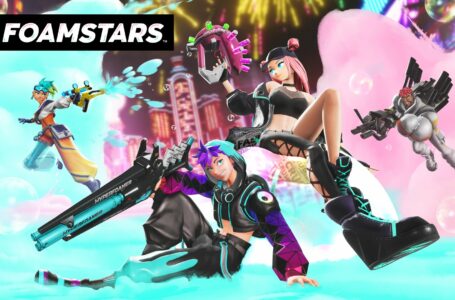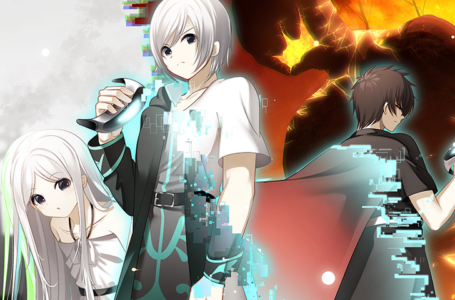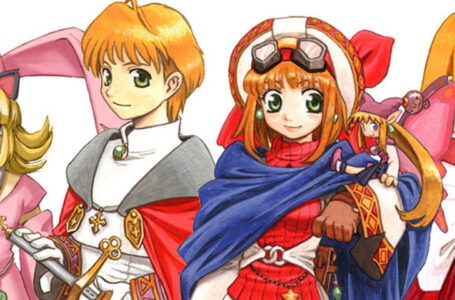Have you played… Joshikousei no Houkago… Pukunpa?
If you have an interest in Japanese games, chances are you are going to come into contact with the Sega Saturn at some point in your gaming career. It may not have been back when the Saturn was current — otherwise the poor thing might have done better over here than it actually did — but it will almost certainly happen at some point. And games like Joshikousei no Houkago… Pukunpa (literally “High School Girls After School… Pukunpa”) are a great reason to do so.
(I subsequently discovered that this game also had a PlayStation release, but something about this game just screams Saturn, so it’s the Saturn version of Joshikousei no Houkago… Pukunpa that we’ll be talking about today.)
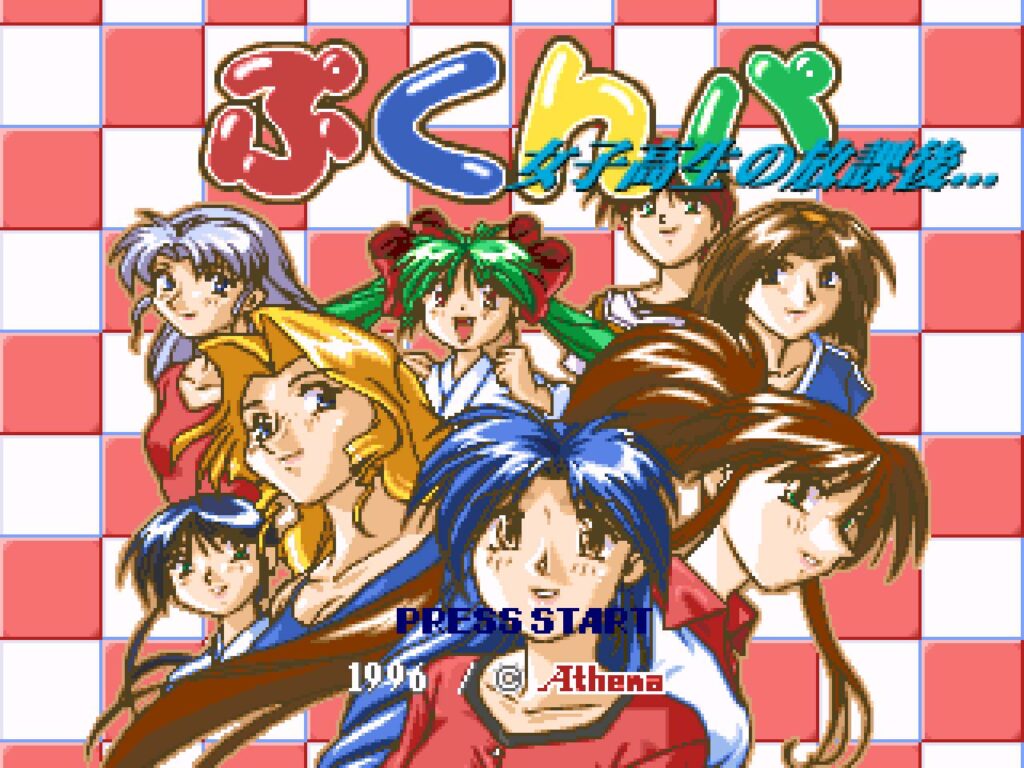
Joshikousei no Houkago… Pukunpa is a puzzle game, released in 1996 by Athena. Specifically, it’s one of those late ’90s puzzlers that I like to think of as “waifu puzzlers”, which feature not only the colourful, cheery puzzle action going on in the foreground, but also some well-animated pixel art anime-style characters doing various things in the background according to what is going on. Other examples that you might be more familiar with — i.e. those which actually got a western release — include the Magical Drop series, Money Puzzle Exchanger and Puchi Carat.
Like most waifu puzzlers, Joshikousei no Houkago… Pukunpa is primarily a competitive game for two players, though it can be played in a solo “Endless” mode if you wish. The basic mechanics are the same for both, with the only difference being that the Endless mode gradually increases in difficulty through fluctuating speed and the introduction of more colours of piece to contend with, while the competitive mode features means of directly “attacking” one another.
The basic mechanics of Joshikousei no Houkago… Pukunpa are similar to Compile and Sega’s Puyo Puyo series, though not identical. Coloured blobs drop into a well in pairs, and you must match them in groups of three or more to remove them from the board. The unique twist that Joshikousei no Houkago… Pukunpa offers is that nearly half of the blobs that drop down are actually bubbles that contain two coloured blobs. These can’t be used in matches by themselves; instead, the bubble must be burst by creating a match next to them, at which point the blobs will emerge and take their places on the board.
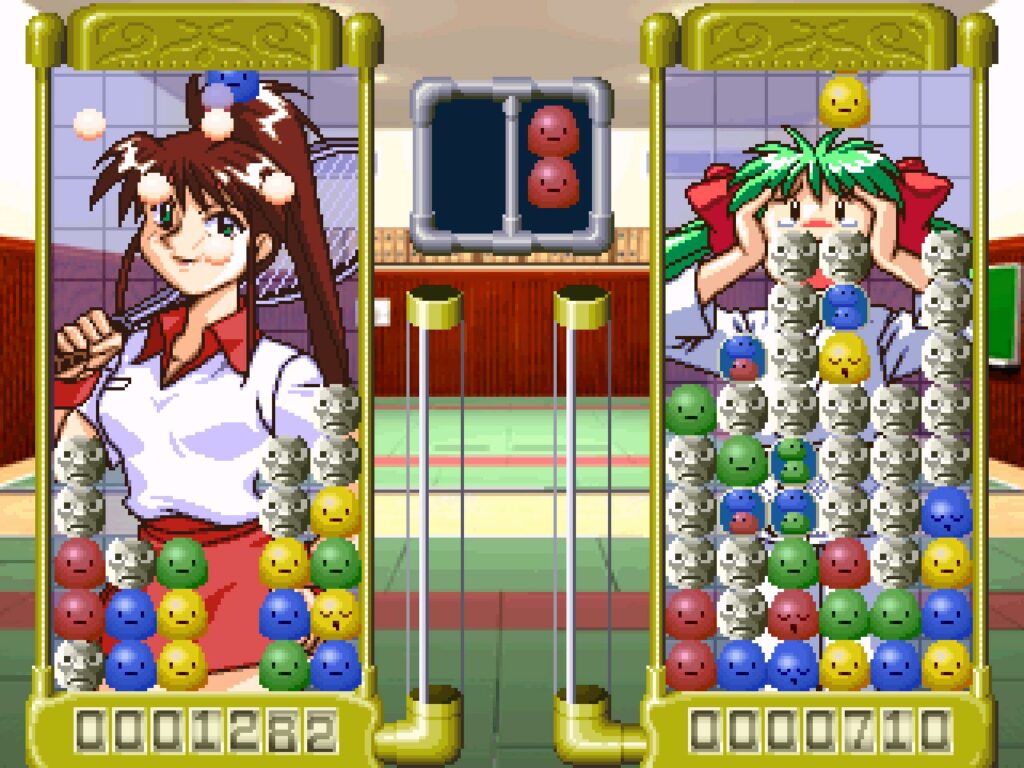
It’s not hard to see how that can potentially set up some interesting chain reaction mechanics, so a significant part of Joshikousei no Houkago… Pukunpa’s gameplay involves carefully positioning these bubbles so that you don’t block yourself off from making matches, but you can also burst the bubbles in order to set off a string of matches. If you can successfully do this, you’ll send stony blocks over to your opponent’s side. These can only be destroyed by creating matches next to them.
Joshikousei no Houkago… Pukunpa’s visual presentation is absolutely lovely. The blobs have plenty of character about them, being depicted as little gooey creatures that respond to the things going on around them. And, in the background, the lovely ladies perform for you according to how well you and your opponent are doing. If you’re wondering where the “after school high school girls” thing comes in, it’s to do with the character designs: all the girls are wearing sporting uniforms for their various after-school sports clubs.
Interestingly, if, for some reason, you don’t want to play a puzzle game featuring beautiful ’90s pixel art anime girls wearing sporting uniforms, you can also turn on “Funny Mode” in the game’s options, which completely reskins the game to something a bit more akin to the early Magical Drop titles — all heavily exaggerated chibi-style characters. These are all crafted with as much attention to detail as their high school girl counterparts, so if you just want to change things up now and then, Funny Mode can provide a nice bit of variation. The game itself is otherwise identical, meanwhile.
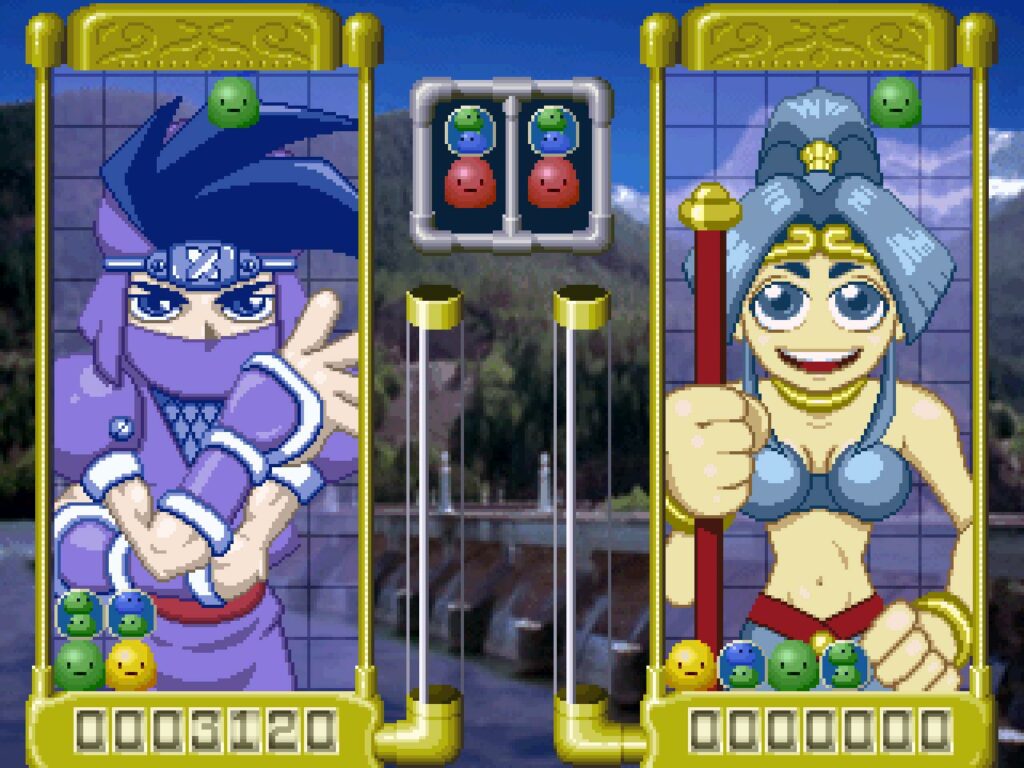
My only real criticism of Joshikousei no Houkago… Pukunpa’s presentation concerns its music. Since the game’s music tracks appear to be stored as Red Book audio on the CD rather than digital sound files, they don’t loop elegantly, simply fading out and restarting when they reach the end.
This isn’t a massive problem in the competitive mode, since most matches will be decided before the music ends, but in the Endless mode, which goes on for a lot longer, this means the single music track gets extremely repetitive after a while. Not a huge deal by any means, but one which it would have been nice to see polished up a bit.
There doesn’t appear to be any recorded history as to the origins of Joshikousei no Houkago… Pukunpa anywhere online so it’s difficult to determine where exactly it came from. It certainly has the format of a puzzle game that would have been released to arcades, but there’s no mention anywhere of it ever having been an arcade machine, nor does it appear in things like MAME ROM sets that are archived online.
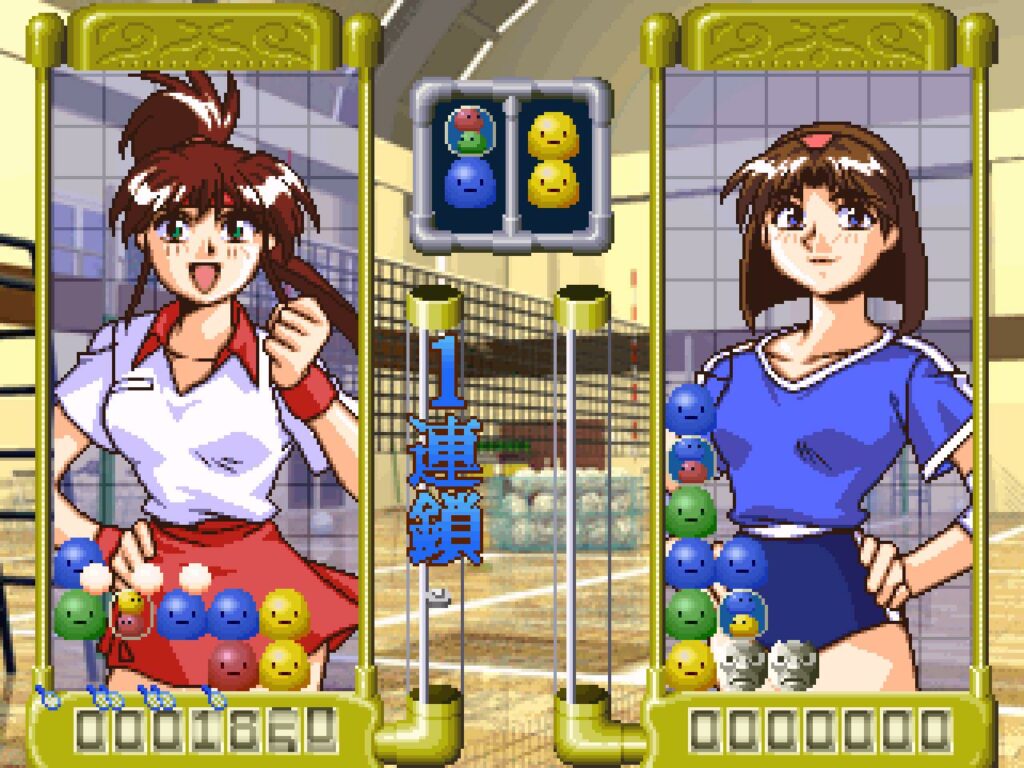
The Saturn version is relatively bare-bones in terms of what it offers compared to some other 32-bit ’90s puzzlers. The only available game modes are the competitive and endless modes, though honestly that’s really all you need. The options are likewise fairly simple, allowing you to adjust the difficulty level of the computer opponent, test sound effects and configure your controller. There’s nothing like a “puzzle mode” or a “time attack mode” or anything like that which you might see in other puzzlers from the period: this is a simple, focused game that does what it does, and it does it well.
I suspect we’ll never, ever see a rerelease of Joshikousei no Houkago… Pukunpa, particularly since developer Athena went bankrupt in 2013 — so if you want to play it for yourself it’s a case of tracking down the Japan-only Saturn or PlayStation release and something to play it on. I’ll leave the details of that up to you — but suffice to say if you enjoy the ’90s waifu puzzler format, Joshikousei no Houkago… Pukunpa is a fun title to add to your regular rotation of brainteasers.
Join The Discussion
Rice Digital Discord
Rice Digital Twitter
Rice Digital Facebook
Or write us a letter for the Rice Digital Friday Letters Page by clicking here!
Disclosure: Some links in this article may be affiliate links, which means we may earn a small commission if you make a purchase after clicking on them. This is at no additional cost to you and helps support Rice Digital!
- Letter from the Editor: passing the torch - June 30, 2023
- Super Woden GP 2 is looking promising - June 30, 2023
- Inti Creates is making a 32 bit-style Love Live action platformer - June 26, 2023




